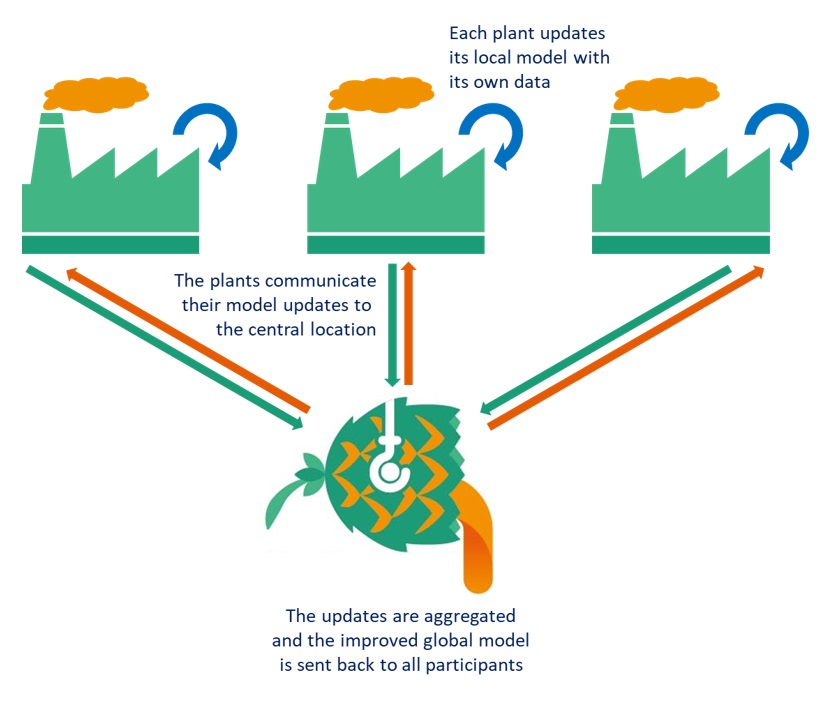The benefits of Federated Learning for the European steel industry
The European steel industry is highly competitive, particularly in the recycled steel sector. As a result, steel plants closely guard their processes and do not share their knowledge with their competitors. While understandable, this secrecy limits the industry’s potential and slows its transition to a greener and more sustainable future. Steel plants have a lot to learn from each other but while collaboration would be preferable it simply isn’t possible. One of the aims of the ALCHIMIA project is to use machine learning to improve the efficiency and output quality of steel plants using data from all participants. The project will guarantee data privacy by using a technique called Federated Learning to train and share machine learning models. Federated Learning was introduced by Google in 2016, and in this article we will look at how it works and how it will benefit the European steel industry.
Let’s imagine that we have a group of smartphone users who are each given recommendations by the same machine learning model. A traditional approach to build this machine learning model is to transfer all the users’ data from their smartphones to one central location. A model is then trained using this enormous collection of data and is sent back to the users who benefit from its results. This approach presents two problems. The first is the transfer of this data from the smartphones to the central location. Given that the data generated by each user could be very large, transfer is often expensive and time consuming. The second problem is data privacy. The data transferred from smartphones is highly sensitive, and users are required to trust the owners of the central data store to not misuse their data and to protect the data appropriately.
Unlike the traditional approach to machine learning, Federated Learning does not require data to be transferred to a central storage location. Instead, the data remains where it is generated. This avoids the risk to privacy that data transfer entails, as well as the excessive communication costs incurred by moving the data to the centre. Under Federated Learning, each user updates the machine learning model locally using only the data available on their smartphone. Here is the clever part: each user only uploads only the updates they make to the machine learning model to the central location. The central location will aggregate these updates – received from many users – to create one large update that is applied to the global model. The new machine learning model is sent back to each of the users, and the cycle starts again: users’ smartphones update their local models using only their own data; they send the updates – and not their data – to the centre; the centre aggregates these updates without ever seeing the data that produced them and sends the latest model back to the users.
The ALCHIMIA project will apply exactly this technique to the European steel industry. The data generated by each participating steel plant is never shared. Instead, there will be one global machine learning model, and each steel plant will update that model using their own data. Those local updates will be centralised and used to improve the global model. Once updated, each steel plant will receive the new model which will help improve the efficiency of their processes even more. In this way, the steel plants can benefit from one another without directly sharing their knowledge. Thanks to Federated Learning, efficiency will increase and output quality will improve across all steel plants, while the participants maintain their privacy and the industry remains competitive.
This is just one of the many ways that the ALCHIMIA project is contributing to a greener and more sustainable European steel industry.

The original paper on Federated Learning can be found here: https://arxiv.org/pdf/1602.05629.pdf
To learn more, consider reading the Wikipedia entry (https://en.wikipedia.org/wiki/Federated_learning) and this helpful blog post (https://pair.withgoogle.com/explorables/federated-learning/)
